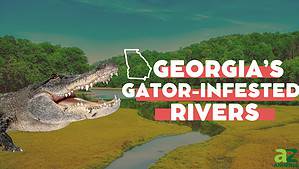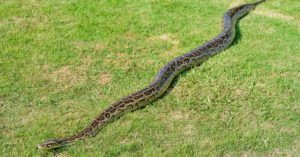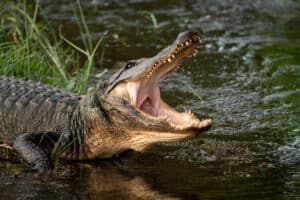Quick Answer:
- Yes, there are alligators in Maryland, but they are not a native species.
- There have been occasional sitings of alligators in Maryland. These were introduced into the state by humans.
- American alligators prefer the American Southeast, where they can be found in around ten states.
When you think about Maryland, you may think about aspects such as fishing or blue crabs—not alligators. After all, when many people think about these ancient reptiles, their mind goes to the southeastern United States. This includes areas rich with swamps and marshes, as well as the Everglades. However, while this is what many people consider to be the primary habitat of alligators, are there American alligators in Maryland?
If you’re interested in learning what may be lurking beneath the surface of some of Maryland’s lakes and rivers, keep reading below!
Are Alligators Native to Maryland?
If your first thought of where alligators are native to doesn’t include Maryland, then you wouldn’t be wrong.
Alligators are not native the Maryland. Instead, the American alligator prefers the American Southeast. Here, they can be found in around ten states, from Texas to Florida to North Carolina. The American alligator prefers freshwater, although it can live in salt water for short periods of time. It is found in the southeastern region’s rivers, lakes, and swamps. It is one of only two living species of alligator. The second of these is the Chinese alligator which is found only in the freshwater of China.
North Carolina is the northernmost natural habitat for the alligator, with the largest population of alligators being near the coast. This means that, when considering native habitats, you wouldn’t need to worry about coming across alligators in Maryland.
However, that’s only when we consider native habitats. Invasive and introduced species can end up in places far from home. This leads to the question of whether alligators appear in Maryland despite not being native.
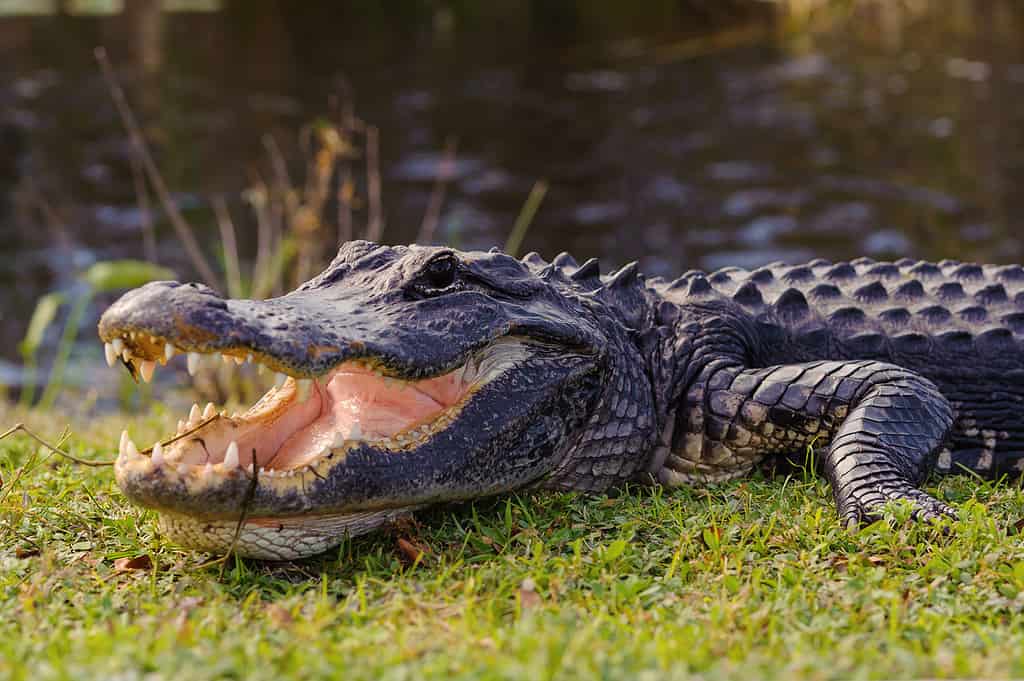
The American alligator is most often found in the southeastern United States.
©Sorbis/Shutterstock.com
Are There Alligators in Maryland?
Although they are not native to the state or surrounding areas, there are alligators in Maryland. This is because they are an introduced species that most likely entered the state through human means. This phenomenon will be further discussed below.
Alligator sightings in Maryland aren’t common, although they have occurred in recent history. In fact, in September 2022, a photographer captured a picture of what is believed to be an alligator in Lusby, Maryland. That’s not the only case, however. In 2021, a nearly 8-foot alligator was spotted, trapped, and killed in a Maryland pond. This pond is located off the Chesapeake Bay, a brackish water source on the coast of the state.
Other places where alligators may have been spotted in Maryland include the Patuxent River. However, in many of these instances, including that of the Lusby alligator (nicknamed Patuxsey), it can be difficult for the local Department of Natural Resources (DNR) to confirm the sighting. As a result, it can be difficult to garner an exact number of how many alligators are in Maryland currently, as well as where they live.
With over 300 miles between North Carolina and Maryland, however, there is some question about how these reptiles ended up so far away from their natural habitat. Keep reading below to explore how alligators first came to Maryland.
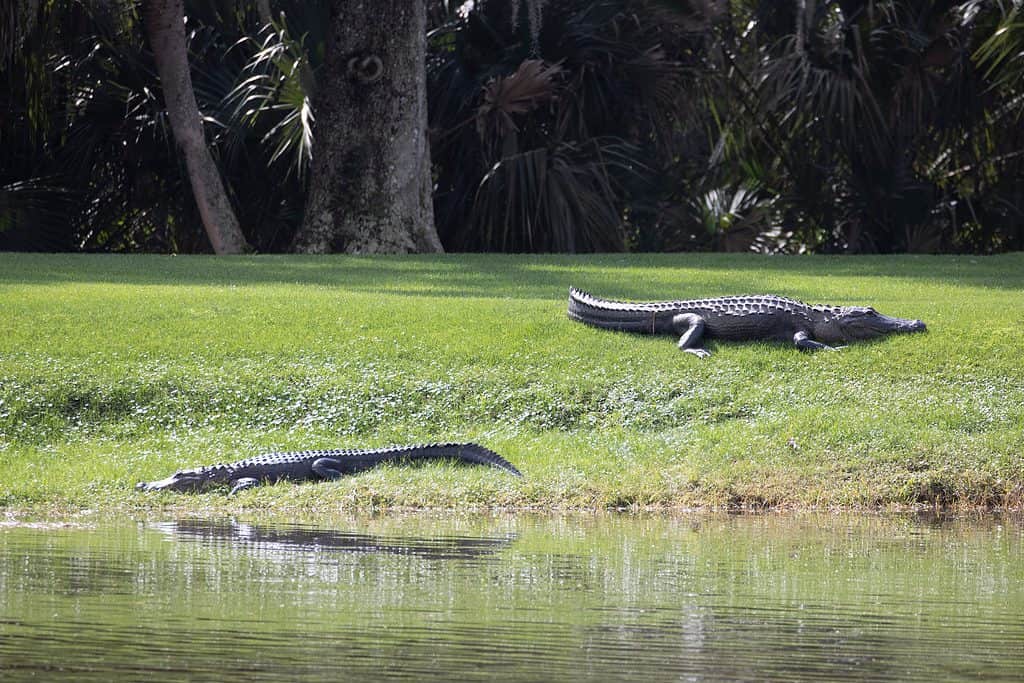
While alligators prefer warmer regions, such as this golf course in Florida, they have been spotted in Maryland.
©Danita Delimont/Shutterstock.com
How Alligators Came to Exist in Maryland
It’s unlikely that alligators traveled from the northernmost extent of their range in North Carolina to Maryland on their own. Instead, the most probable cause for alligators ending up in Maryland can be traced to human interference: specifically, the exotic animal trade.
In many states, you can purchase, own, and raise an American alligator as a pet with the right permits and licenses. Maryland is not one of these states, with alligators, bears, wolves, and other wild species being classified as illegal to own. As a result, while people may not be able to purchase an alligator directly in Maryland, they can in other states before bringing it home.
In the past, alligators were a common tourist purchase in states like Florida. Families from non-alligator states would visit native states, some of which sold alligators. This was especially true in the 19th and 20th centuries. However, many people also underestimate just how large and powerful an adult American alligator is. Because of this, many people would return home to Maryland with their small, cute hatchling, only to find themselves struggling for options once the alligator reached its adult size.
The answer for many people was to illegally release their alligators into the wild. Alligators are known for resilience and ability to survive, which is exactly what they did once they reached the fresh waters of Maryland. Over time, they reproduced, and a small non-native population developed in the state. This is a similar case to how the python became an invasive species in Florida.
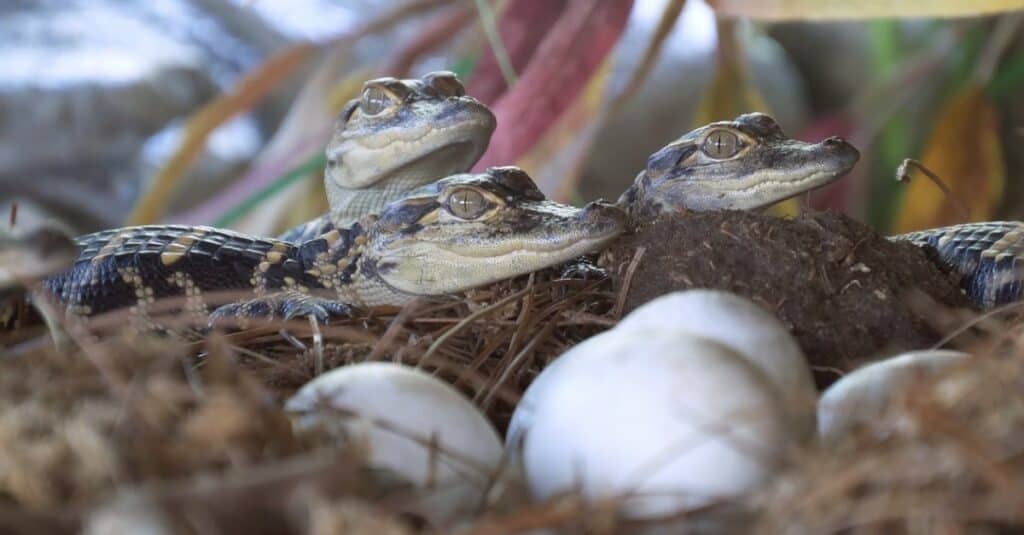
Alligator hatchlings start small, but they can grow to be up to 15 feet in length!
©DimaSid/Shutterstock.com
The photo featured at the top of this post is © timyee/Shutterstock.com
Thank you for reading! Have some feedback for us? Contact the AZ Animals editorial team.




